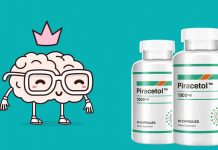
Most people rely on the caffeine in coffee, to wake them, help them stay alert, and make them mentally sharper to help them get through the work day. Although coffee can help wake you up and stay more alert, it is important to note that chronic consumption of coffee has multiple effects on your hormones and normal physiology.
Coffee is one of the world’s most popular drinks. From a simple cup of joe to a complex espresso drink, about 80 percent of adults consume coffee each day. Coffee is a ubiquitous drink consumed all over the world. It comes in various types and roasts including dark and light roasts.
When a coffee bean is processed it is roasted to its desired degree of darkness. A dark roasted bean is roasted until it is almost charred, whereas a light roasted bean has a lighter color. Darker roasted beans are more intense in color and flavor, where lighter roasted beans are a bit milder.
Darker roasts also contain a lower amount of caffeine, coffee’s active ingredient, compared to lighter roasts. Caffeine, is biologically active substance found in a variety of foods and can have several central and peripheral effects throughout the body. Because of its high consumption in the average adult, it is important to understand how the caffeine in coffee can affect the hormones in your body.
Central Effects of Coffee
A major site where coffee can modulate hormonal pathways is in the brain. In normal physiology, the brain serves as an important site to process different metabolic and stress signals and in turn regulates peripheral organs and systems. In the brain, coffee antagonizes the adenosine receptor, a signal that makes you feel tired and sleepy.
Because adenosine can no longer bind to its receptor, you don’t feel as sleepy as you would without caffeine. This causes you to feel more energetic and be mentally sharper. It can also modulate certain neurotransmitters, such as serotonin, which can improve your mood and make you feel better.
Also read: Superior magnesium complex MagTech >>
Peripheral Effects of Coffee
Caffeine can also have several hormonal effects throughout the body. Perhaps the largest effect is on the adrenal glands. The hypothalamic-pituitary-adrenal (HPA) axis is a regulatory system that regulates the stress response. It begins with the hypothalamus, an important part of your brain, and connects to your adrenal glands, which are responsible for secreting key hormones involved in stress, cortisol and adrenaline.
Adrenaline is known as the fight or flight hormone, which signals to your body when it is under stress causing an elevation in heart rate. The second hormone cortisol, causes the liver to dump excess glucose into the bloodstream. These hormonal systems evolved as a way to escape danger.
If you were being chased by a predator, these pathways would be activated, allowing you to escape and ultimately survive. As you can imagine, this causes several downstream endocrine effects as the pancreas will then secrete insulin to handle this glucose load.
Caffeine causes the release of both cortisol and adrenaline. Therefore, an excess level of caffeine over a long period of time can mimic the stress response. It can also cause insulin resistance as having elevated insulin levels may result in your receptors becoming complacent requiring more insulin to get the job done.
In the periphery, coffee can have several additional effects. First, it can change the way your body uses macronutrients. For example, it can increase the availability of free fatty acids. Fatty acids are a major fuel source for endurance exercise, meaning coffee can actually help you work out longer and burn more fat.
When combined with additional ways to burn fat, coffee will boost your metabolism and help you lose weight. It can also attenuate signals in the liver. The liver is the organ responsible for metabolizing several hormones, such as estrogen and testosterone. Although the mechanisms are not entirely understood, caffeine seems to dampen some signaling responses while upregulating others. For example, caffeine seems to lower the risk of breast cancer because it up-regulates a key enzyme involved in estrogen metabolism.
How Much Coffee is Too Much?
The majority of studies that examine the effects of coffee have studied the effects of about 1-2 cups of coffee, or about 200-400mg of caffeine. It is important to note that caffeine is found in a variety of food and drinks such as chocolate, tea, and energy bars so you must be mindful about your total consumption. Consuming more than 400 mg of caffeine seems to have negative effects on your health and can have negative effects on your hormones.
Although coffee can have several benefits to help improve your mood, the long-term effects seem to be both controversial and context-dependent. A safe way to ensure that you are not causing adverse effects on your body is to consume coffee in moderation and to live a healthy lifestyle.
Also read: Smart Caffeine by Natural Stacks >>
























